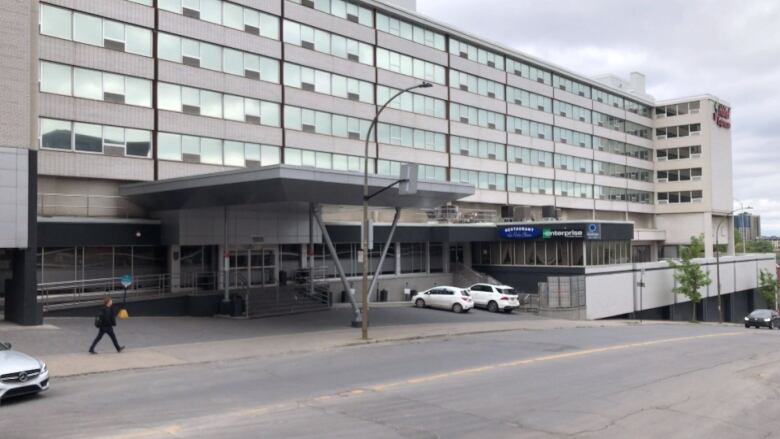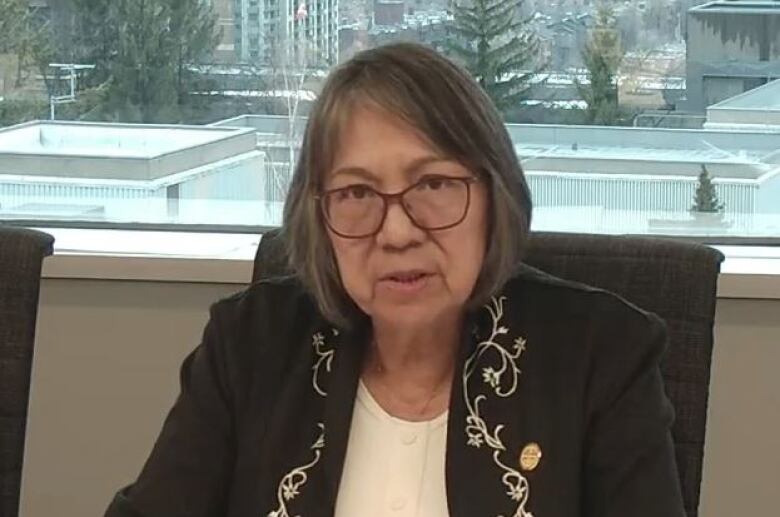Agency nurse working for Cree health board tests positive for COVID-19
Officials say risk to patients low and measures in place are working

Health officials for the Cree Board of Health and Social Services of James Bay in northern Quebec say all theprotocols were followedto protect patients and communities after an agency nurse working at Hotel Espresso in Montreal tested positive for the novel coronavirus.
Hotel Espresso is where many Cree patients stay when they go south for medical treatment.
The nurse worked on April 9 and part of the day on April 10, screening long-term dialysis patients who live at Hotel Espresso, as well as a group of patients and their escorts who were preparing to return to the communities.
"He wore personal protective equipment while he was seeing the patients," said Bella M. Petawabano, chairperson of the Cree health board, adding he maintained physical distance and followed all the protocols, including wearing a mask, visor and changing his gloves between each patient.

"He was very cooperative and transparent about his work days at Espresso, so I'm confident that it's under control."
Petawabano said the nurseinteracted with 19 long-term dialysis patients and a group of seven people, some patients and some escorts, who were being sent back to the Cree communities.
She said all the patients and their close contacts have been notified and are self-isolating.
She also said that Cree patients who are self-isolating at the Espresso are on a separate floor from other patients.
Stable Cree COVID-19 numbers for a week
The number of Cree who have tested positive for COVID-19 has been stable since last week at a total of six: five in the communities and one patientin Montreal.
For Petawabano, that's a sign that the measures in place at the health board and in the communities are working.
We have been very proactive.- Bella M. Petawabano, chairperson of the Cree health board
"We have been very proactive," said Petawabano. "I'm very grateful that the Cree Nation government ... and all the chiefs have been very proactive in helping the Cree board of health and getting communities to respect physical distancing."
Three of the Cree COVID-19 cases have now recovered, said Petawabano.
Use of agency nurses necessary
Agency nurses are called in to help health networks maintain adequate staffing and are used throughout Quebec, according to Petawabano.
"It's quite common across the Quebec health system, especially in this kind of pandemic, we're experiencing staffing shortages," said Petawabano. "We're not the only ones."
She said there are very strict protocols for any health-care worker staff or agency who is sent into a Cree community.
They are required to limit high-risk contacts as much as possible for 14 days prior to traveling up north.
We're experiencing staffing shortages. We're not the only ones.- Bella M. Petawabano, chairperson of the Cree health board
In addition, 24 hours before they are set to head north, the board's health and safety department assesses the employees risk of COVID-19 exposure during those 14 days.
Depending on the result of this evaluation, the worker may be required to self-isolate for an extra week after arriving in the community. Each employee is also screened before heading north and after they arrive in the community.

"To make sure all these health-care providers are COVID-free when they come to [Cree communities], they'regiven very strict protocols," said Petawabano.
She addedhealth-care workers must also provide a letter stating they are cleared to work when they arrive in the communities, and they must wear protective gear. They must also take their temperature twice a day.
Petawabano said it's important for everyone in the Cree Nation to continue to follow the COVID-19 measures:to gather only with people you live with, to only go out when absolutely necessary, to stay more than two metres away from other people, to wash hands often and for more than 20 seconds, and to avoid touching one's face.
"We'll be able to make a differencein terms of [avoiding] a wide spread of COVID-19 in our communities," said Petawabano.












_(720p).jpg)


 OFFICIAL HD MUSIC VIDEO.jpg)
.jpg)



























































































